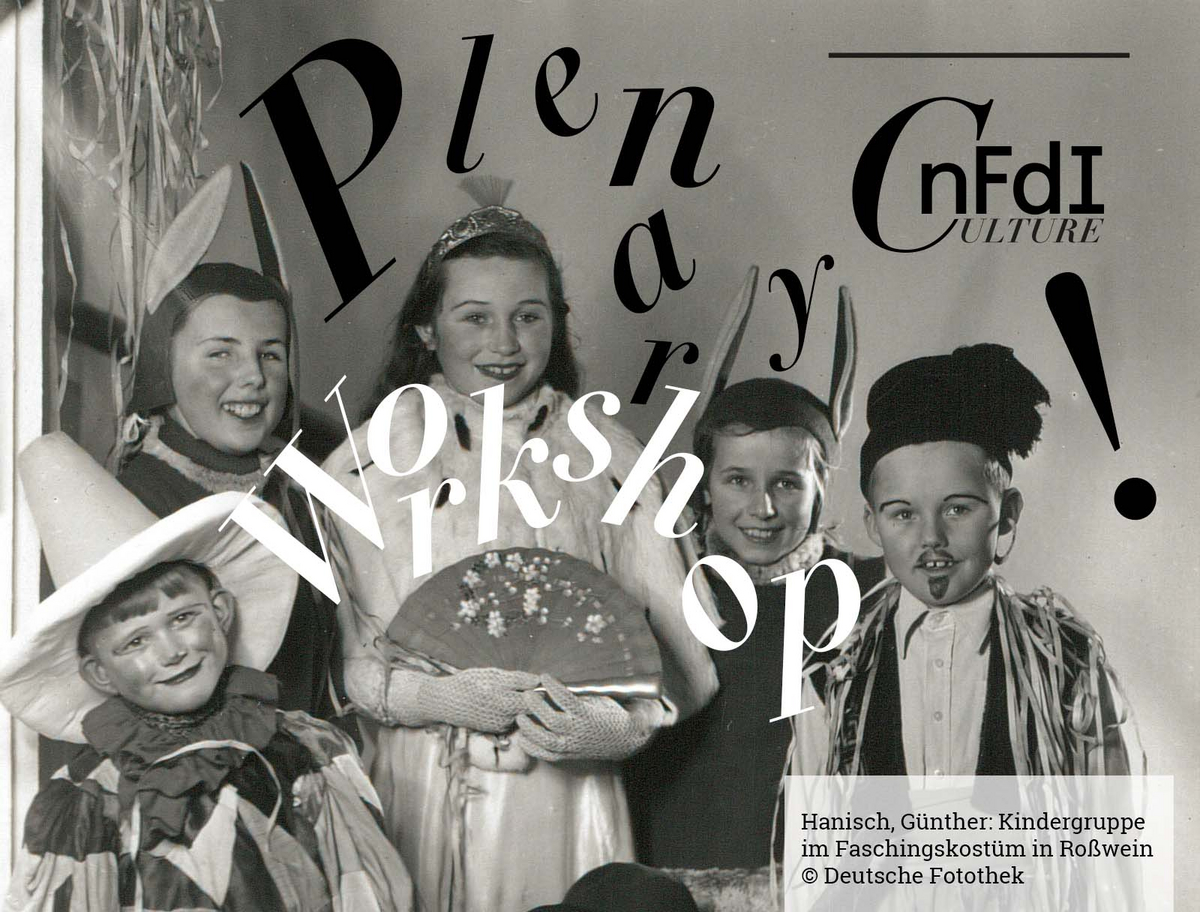Workshop | 17. November 2021
Next Generation Books: Mapping Workflows and Tool sets

Workshopankündigung erstes Culture Community Plenary
"Kindergruppe im Faschingskostüm in Roßwein mit zugefügter Schrift" Autor:in: Günther Hanisch
Presentation workshop, ideation, and workflow mapping
#NextGenBooks #4CultureCommunityPlenary
Organised by: Lambert Heller (Moderator) and Simon Worthington, TIB
Topics: Archives and collection publishing as open access; Linked Open Data, and open science practices; collaborative authoring and co-creation.
Duration: Three hours, 17 Nov. 2021, 3-6pm CET
Registration: https://t1p.de/registration-next-generation-books
Presenter info and schedule: https://github.com/TIBHannover/ADA/wiki/Events#speakers-and-presentation-summaries
A workshop to examine new types of books being made on, for example, art or architecture and their workflows — single source, computational, and collaborative: the technologies, levels of digitization, various types of data to be integrated, collaborative working practice, the motivations, current challenges, and learning from book history.
The workshop brings together different perspectives: collection management and curation, technology platforms, and book series publishers. A series of short presentations will be made about 'work-in-progress' productions, including:
- ADA Semantic Publishing Pipeline (TIB) - Single source publishing for multi-format outputs.
- Verum factum book series - Max Planck Institute for the History of Science (Berlin) and Ca' Foscari University (Venice).
- Graham Larkin - Curator of Early Illustrated Books, USA.
- COPIM (Community-led Open Publication Infrastructures for Monographs) - UK, International.
The output of the workshop would be a mapping of workflow and tools issues for archives, collections, and scholars. This would be the first of a series of such workflow and tool mapping workshops.
A Miro Board will be used to collaboratively map the different workflows, to show key stages and related tool set options.
Workflows would be grouped in two types:
- Collection curation and presentation - using complex digital objects - PIDs, LOD, or IIF, etc.; modern computational infrastructures; and Open Access IPR frameworks
- Book series - where scholars are authoring related to collections.